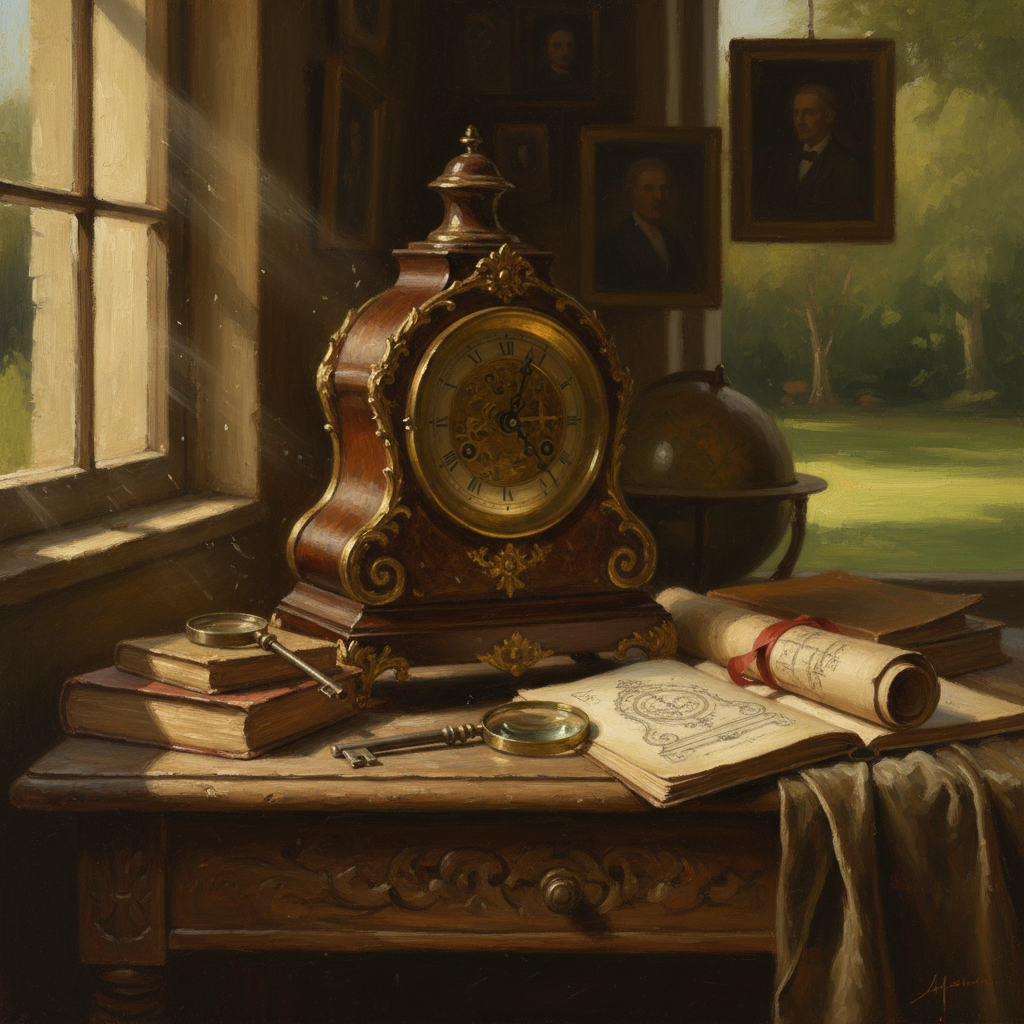The Ingenious Masquerade of Eliza Ariail
In the heart of the bustling 19th century, nestled in a modest town, the enigmatic Eliza Ariail dared to dream beyond the limitations of her era. Her mind, a whirlpool of curiosity and intellect, led her to the dusty halls of a grand library, where she discovered more than just books—but a hidden lineage of defiance and wit.
Eliza’s tale begins under the dim glow of gas lamps, her insatiable hunger for knowledge setting the stage for a venture that would ripple through her family’s history like an undeciphered code. Known in whispers for her brilliance and independence, Eliza was a beacon in a world reluctant to illuminate the potential of women. Her steadfast resolve found its challenge—and its opportunity—when a prestigious scientific symposium loomed on the horizon, tantalizingly close yet cruelly out of reach for her kind.
Determined to breach the walls built by societal norms, Eliza schemed with the precision of a master tactician. She transformed herself into “Edward Ariail,” a guise borrowed from her unsuspecting brother’s wardrobe. Her heart fluttered like a bird against a cage of nerves as she stepped into the symposium, shoulders squared and voice modulated to fit her fabricated persona.
Within the hallowed halls of discourse, Eliza’s mind danced among the stars, absorbing theories of natural philosophy and astronomy. She tuned her ear to the cadence of intellectual debate, her disguised mouth weaving insights and hypotheses that caught the attention of learned scholars. Her contributions, penanced in secrecy, sparked discussions and turned heads, leaving esteemed minds in awe of the mysterious “Edward.”
Eliza’s masquerade did not end with the symposium. Embracing her new identity, she penned letters to eminent scientists, embedding herself within the folds of academia. Her writings, full of probing questions and daring challenges to established thought, rippled through the scholarly community. Over years, her words molded intellectual narratives, altering the course of papers and theories without revealing her true self.
It wasn’t until years after her death, when rummaging through ancestral trinkets, that the family unearthed the carefully penned letters of “Edward Ariail.” The revelation of Eliza’s ingenuity was a thunderclap of shock and admiration. It wasn’t just her identity that was unmasked, but her legacy—one of courage, intellect, and the breaking of barriers.
Today, Eliza Ariail stands as a testament to hidden brilliance and audacious resolve, a matriarch who forged paths in secret so that future generations could walk them openly. Her tale is immortalized in the annals of family lore, not as a footnote, but as a vibrant chapter—an echo through time of one woman’s relentless pursuit of knowledge and the reshaping of boundaries as she knew them.



